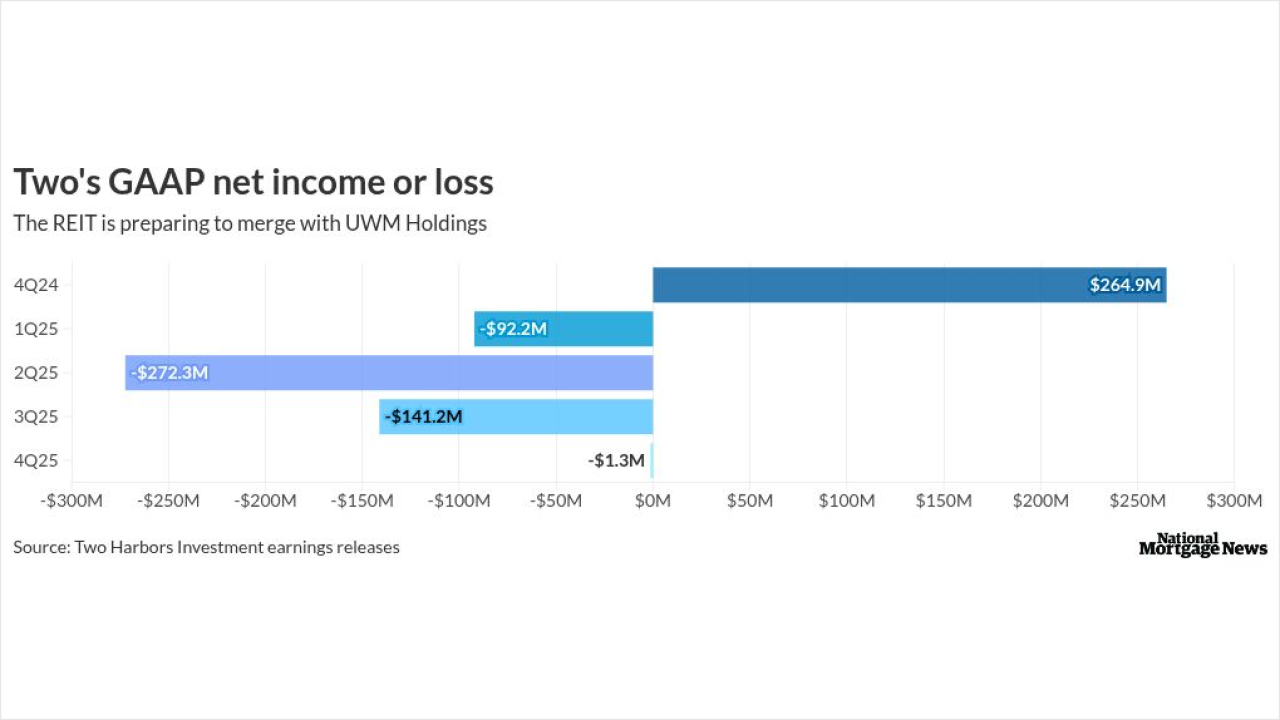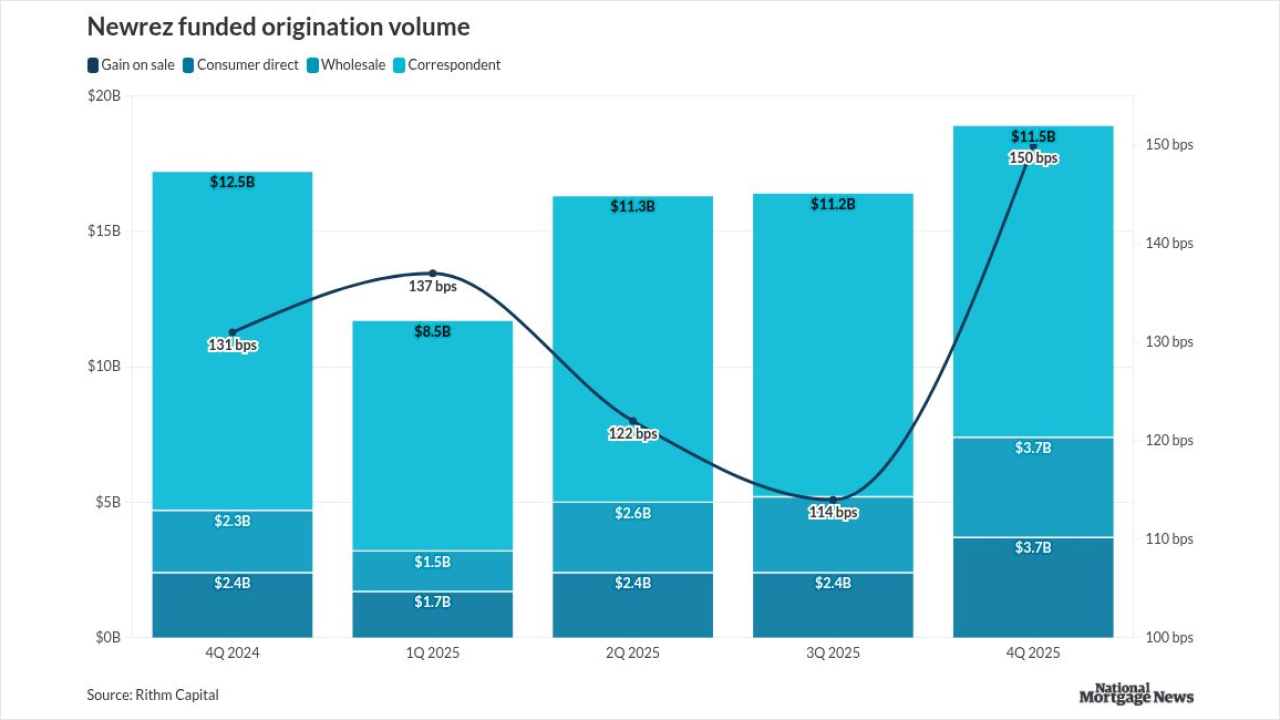The government-sponsored enterprises, at the direction of their regulator, are making a change to counterparty requirements that will give nonbank mortgage companies relief related to loans in forbearance.
The change allows mortgages in forbearance to count less heavily toward nonperforming loan calculations used in determining minimum liquidity standards. Those calculations are normally based in part on the amount of agency mortgage servicing that is 90-plus days past due.

As a result of the change, mortgage companies that work with Fannie Mae and Freddie Mac can count 30% of previously current loans that go into forbearance toward that calculation. For liquidity purposes, loans in this category will remain in it for the duration of the quarter even if they exit forbearance.
The Community Home Lenders Association welcomed the move.
"CHLA is appreciative of this step, which recognizes that loans in forbearance that are not in default don't pose the same risk and don't merit the same financial requirements as loans in default," Scott Olson, executive director of the association, said in an email.
While forbearance rates are
Plans for the change at the GSEs followed the Federal Housing Finance Agency's decision to



